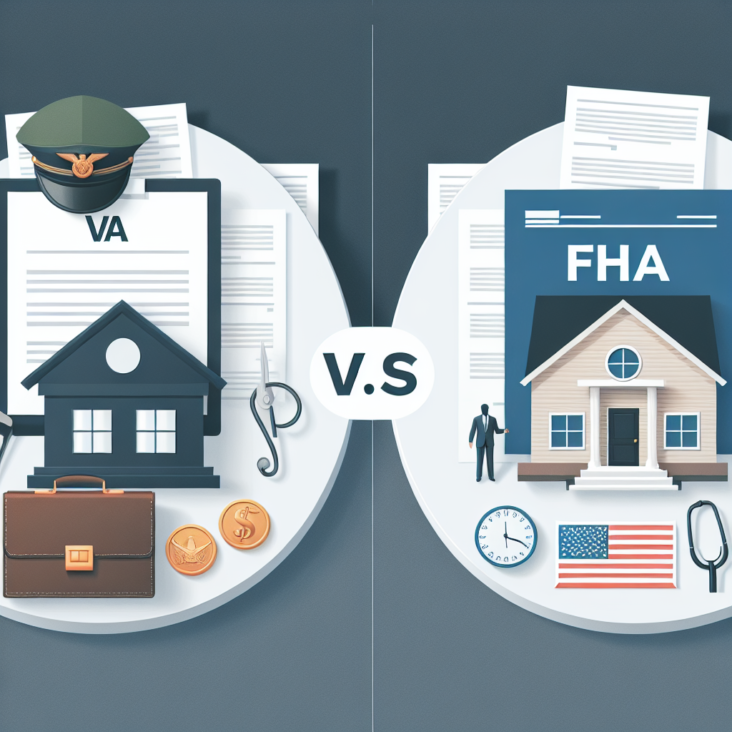VA vs. FHA Loans: Which Government Program Suits You Best?
When it comes to purchasing a home, choosing the right mortgage is a crucial step. For many, government-backed loans like VA and FHA loans offer accessible paths to homeownership. Understanding the differences between these two programs can help you decide which is best suited for your financial situation and homebuying goals.
What is a VA Loan?
VA loans are a special type of mortgage available to veterans, active-duty service members, and certain members of the National Guard and Reserves. Backed by the U.S. Department of Veterans Affairs, these loans offer significant benefits:
- No down payment required for qualified borrowers.
- No private mortgage insurance (PMI).
- Competitive interest rates.
- Fewer strict credit requirements.
To qualify for a VA loan, you must meet specific service requirements, which vary depending on whether you are active duty, a veteran, or a member of the National Guard or Reserves.
What is an FHA Loan?
FHA loans, insured by the Federal Housing Administration, are designed to help lower-income or less creditworthy buyers secure home financing. Key features of FHA loans include:
- Low down payment options, as little as 3.5%.
- More lenient credit score requirements.
- Mandatory mortgage insurance premiums (MIP).
FHA loans are accessible to all types of borrowers, not just veterans or military personnel, making them a popular choice for first-time homebuyers.
Comparing VA and FHA Loans
To determine which loan is right for you, consider the following factors:
| Criteria | VA Loan | FHA Loan |
|---|---|---|
| Down Payment | 0% | 3.5% |
| Credit Score | More forgiving | Minimum 580 for 3.5% down |
| Mortgage Insurance | Not required | Required (MIP) |
| Eligibility | Service members, veterans | Open to all |
Pros and Cons of VA Loans
Pros:
- No down payment, making it easier to purchase a home without saving for years.
- No PMI, reducing monthly costs.
- Competitive interest rates, which can save money over the life of the loan.
Cons:
- Limited to eligible service members and veterans.
- VA funding fee, which can range from 1.4% to 3.6% of the loan amount.
Pros and Cons of FHA Loans
Pros:
- Lower credit score requirements, helping those with imperfect credit histories.
- Small down payment, making it accessible for first-time buyers.
- Available to a wide range of borrowers.
Cons:
- Mandatory MIP, which increases monthly payments.
- Lower loan limits than conventional loans in some areas.
Conclusion
Deciding between a VA and an FHA loan depends largely on your personal circumstances, including your military service status, credit history, and financial goals. VA loans are typically ideal for eligible veterans and military members due to their no down payment and no PMI benefits, while FHA loans offer accessible options for those with lower credit scores or limited funds for a down payment. Consider your eligibility, long-term financial plans, and consult with a mortgage advisor to make the best choice for you.




